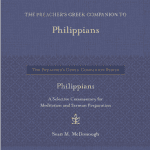My new friend, Noel Forlini Burt, has written an excellent new book on journeying through “wilderness” experiences with faith and hope. I am thankful that she agreed to write about this topic and showcase some ideas in her book. Noel has a PhD from Drew University. She teaches and lectures widely in the intersection of Bible and spiritual formation. A spiritual director, retreat leader, and academic, Noel believes the Bible is a deep well from which people can draw in their own spiritual formation.
 In the Struggle is the Formation.
In the Struggle is the Formation.
by Noel Forlini Burt
In the struggle is the formation.
These were the first words I heard at orientation to what I have affectionately come to call “monk camp.” It was August of 2018, and I sat down with about 60 strangers at Camp Sumatanga, a Methodist camp just outside Birmingham, Alabama. Together, we began orientation for a two-year certification in spiritual formation through the Upper Room Academy for Spiritual Formation. During orientation, one of our leaders spoke eloquently about spiritual formation—about its purpose and about its challenges. She offered the same definition given by theologian Robert Mulholland many years ago—spiritual formation is the process of being transformed into the image of Christ for the sake of others.
In the struggle is the formation, she repeated, acknowledging from the outset that suffering, struggle, discomfort and disorientation are central to the shaping work of the God in whose image we are formed.
These were also the first words I heard—really heard—just before I entered a season of profound disorientation in my own life.
Faithful Christians throughout the ages have used different names, images and metaphors to describe disorientation in our lives with God. Quakers, for example, refer to Way Closing to describe painful seasons of suffering and transition, where one life has ended and an uncertain future is dimly lit around a darkened corner. The medieval mystic Saint John of the Cross spoke about a Dark Night of the Soul, in which God no longer felt present and all the usual comforts of prayer, Scripture reading, and worship no longer fed his soul. In John of the Cross’ understanding, God had withdrawn his presence, ultimately, to stoke in him a greater desire for God.
Biblical tradition itself largely refers to times of disorientation, suffering, or experiences of God’s absence through the metaphor of wilderness. Biblical wilderness, as depicted in Exodus through Deuteronomy, or used as a metaphor for exile in Isaiah, or even in the life of Jesus, seems to involve many things: disorientation, waiting, suffering, restlessness, confusion, spiritual malaise, stripping away of all of the usual things upon which we can rely, darkness. And, notably, encounter with God. Throughout Scripture, the Israelites live in wilderness space at least twice, whether actually or metaphorically in exile. Theologically speaking, this textual terrain seems to convey that wilderness is liminal space, space that is betwixt and between, space caught on the threshold from one thing to another. Wilderness is space that is not intended for permanent habitation. It is a space that is not home. Our experiences of wilderness teach us to hold everything we think we know about God, about ourselves, and how the world works, loosely. Ultimately, wilderness is a space that teaches us to let go. Wilderness is the place in which God bids us to come and die and also to be reborn.
I know, not just because I have traveled this textual terrain (although I have), but because I have traveled wilderness terrain myself. My experience of wilderness has textured my own relationship with God, so that I can affirm with confidence—in the struggle is the formation.
In my new book Hope in the Wilderness: Spiritual Reflections for When God Feels Far Away, I invite readers into my own season of wilderness wandering, enfolding the story of biblical characters who also wandered in wilderness. While we need to be careful, prayerful, and pastoral in how we speak about God’s role in suffering, it is an inescapable reality that there are times in Scripture where God’s people find themselves in wilderness because God has sent them there. For example, when the LORD leads the Israelites out of slavery in Egypt, Exodus tells us that the LORD causes them to take the “roundabout way of the wilderness” (Exod.13:17-18). In the book of Hosea, the prophet speaks for the LORD and tells the people, “…I will allure [Israel], and bring her into the wilderness, and speak to her heart…” (Hos.2:14) When Jesus is tempted by the Devil in the wilderness, all three Synoptic Gospels make it plain—the Spirit “drove” him there (Matt. 4:1; Mk. 1:12; Lk. 4:1). And, the prophet Habakkuk tells us that it is God who “raises up the Babylonians” (Hab.1:6). Scripture offers an uncomfortable reality—sometimes (not always) God sends God’s people into the wilderness not as a punishment but for the purpose of spiritual formation, of being conformed to the image of Christ for the sake of others. In short, if we cooperate with the work that God wants to do in our lives, the wilderness can change us.
The wilderness is a school of humility, a vehicle of holiness, a place where we learn that God is the one before whom we are all laid bare. What Moses tells the people in Deuteronomy is this: God caused the people to hunger, led them through the wilderness with terrible scorpions and snakes, in order to humble them, to test them, and, in the end, to do them good (Deut.8:16).
In the struggle is the formation.
Dare we trust that our own wilderness experiences can actually do us some good?
None of this means that we do not lament our losses honestly.
While Hope in the Wilderness is about my own story, the reflections in my book are intended to beckon you gently to open yourself to the heart of God in your own story. At some point all of us, no matter who we are and how faithful we are—if we are awake to our lives at all—will find ourselves in the wilderness. Perhaps like me, somewhere in the midst of your own wilderness, you may find yourself leaving the home of God’s heart. Perhaps like me, somewhere in the middle of your own wilderness, you may be tempted to substitute other things for the calling of God upon your life. Maybe you will yell at God a little (or a lot). Maybe you will enter into the Great Silence (part of the Liturgy of the Hours in Christian tradition) and encounter God differently than ever before. Maybe you will learn to name God—and yourself—differently than ever before. I pray that in your own wilderness wandering, you will begin to hear the voice of God calling you home to Godself. And, I pray that when you read Hope in the Wilderness: Spiritual Reflections for When God Feels Far Away, you will be drawn closer to the heart of the God who has loved you before you were born and who will go on loving you after you die.
In the struggle is the formation.
Check out Noel’s new book!













